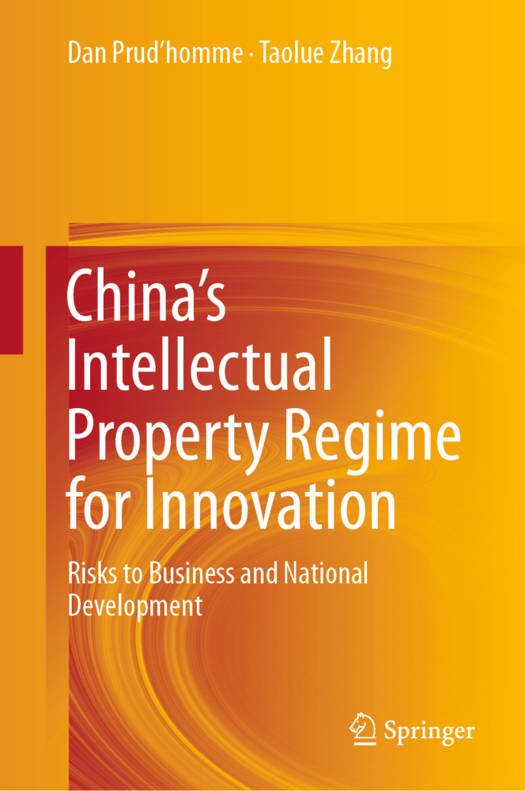
- Afhalen na 1 uur in een winkel met voorraad
- Gratis thuislevering in België vanaf € 30
- Ruim aanbod met 7 miljoen producten
- Afhalen na 1 uur in een winkel met voorraad
- Gratis thuislevering in België vanaf € 30
- Ruim aanbod met 7 miljoen producten
Zoeken
China's Intellectual Property Regime for Innovation
Risks to Business and National Development
Dan Prud'homme, Taolue Zhang
Hardcover | Engels
€ 111,95
+ 223 punten
Omschrijving
This book evaluates the risks that China's intellectual property (IP) regime poses to innovation. China's IP regime has been heavily criticized as potentially stifling innovation. However, the country's innovation capabilities have risen significantly and major reforms have recently been made to its IP regime. How risky, really, is China's IP regime for innovation? This book investigates this question at different units of analysis based on a multidisciplinary assessment involving law, management, economics, and political science. Specifically, it critically appraises China's substantive IP laws, measures for boosting patent quantity and quality, measures for transmitting and exploiting technological knowledge, new experimental IP measures, and China's systems for administering and enforcing IP. Practitioners and scholars from various backgrounds can benefit from the up-to-date analysis as well as the practical managerial tools provided, including risk assessment matrices for businesses and recommendations for institutional reform.
Specificaties
Betrokkenen
- Auteur(s):
- Uitgeverij:
Inhoud
- Aantal bladzijden:
- 237
- Taal:
- Engels
Eigenschappen
- Productcode (EAN):
- 9783030104030
- Verschijningsdatum:
- 17/05/2019
- Uitvoering:
- Hardcover
- Formaat:
- Genaaid
- Afmetingen:
- 156 mm x 234 mm
- Gewicht:
- 535 g

Alleen bij Standaard Boekhandel
+ 223 punten op je klantenkaart van Standaard Boekhandel
Beoordelingen
We publiceren alleen reviews die voldoen aan de voorwaarden voor reviews. Bekijk onze voorwaarden voor reviews.







